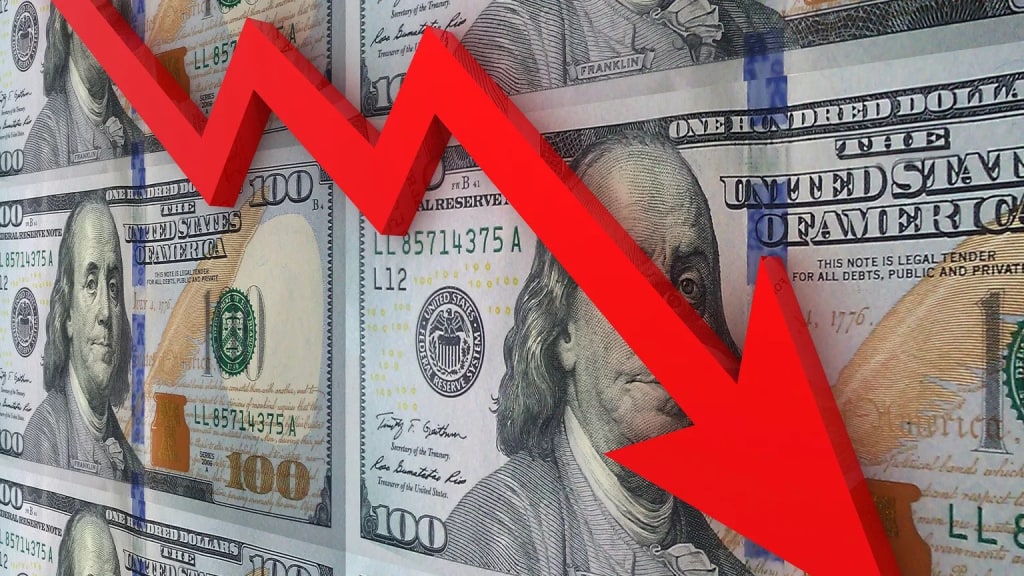The Value of the Dollar: Is the End Near?
The Hidden Truth

The US dollar has been the world's leading reserve currency for decades, and it's been considered as one of the most stable and reliable currencies. However, recent economic trends suggest that the value of the dollar might not last forever. With the current state of the US economy and global market, it's time to ask: is the end of the dollar's dominance near?
The US dollar has been the dominant currency in the global market since the end of World War II. Its status as a reserve currency has made it a reliable choice for investors and traders around the world. However, in recent years, the US dollar has faced several challenges that could significantly impact its value and dominance.
The first factor affecting the value of the US dollar is inflation. Inflation occurs when the value of a currency decreases, and prices of goods and services rise. The US Federal Reserve has been printing more money to stimulate the economy, which could lead to higher inflation rates. As a result, the value of the dollar could decline, making it less attractive to investors.
The second factor affecting the value of the US dollar is the increasing debt levels in the United States. The country's debt has been steadily rising, and it's projected to reach 107% of its GDP by 2023. This level of debt can lead to a weaker dollar, as investors may lose confidence in the US economy's ability to repay its debts.
Another significant challenge to the US dollar's dominance is the rise of China's economy. China has been steadily increasing its economic influence and has become the world's largest trading partner. The Chinese government has been promoting the use of its currency, the yuan, as an alternative to the US dollar. As more countries start using the yuan for trade, the demand for the US dollar may decrease, leading to a decline in its value.
Finally, the COVID-19 pandemic has significantly impacted the global economy and the US dollar's value. The pandemic has caused disruptions in supply chains and reduced demand for goods and services, leading to a decrease in economic activity. The US government has been implementing policies to stimulate the economy, such as printing more money and lowering interest rates. While these policies have provided short-term relief, they could lead to long-term consequences, such as inflation and a weaker dollar.
So, what does this mean for investors and traders? It means that they need to consider diversifying their portfolios and looking for alternative investments. One option is to invest in commodities such as gold, which tends to hold its value during economic downturns. Another option is to invest in currencies such as the euro or the yen, which could appreciate in value if the US dollar continues to decline.
In conclusion, while the US dollar has been the dominant currency for many years, recent economic trends suggest that its value and dominance may not last forever. Investors and traders need to be aware of the challenges facing the US economy and the impact they could have on the value of the dollar. The US Federal Reserve's actions to print more money to stimulate the economy, coupled with the country's rising debt levels, could lead to higher inflation rates and weaken the dollar's value.
Moreover, the rise of China's economy and its efforts to promote the use of its currency, the yuan, as an alternative to the US dollar, could lead to a decline in demand for the dollar. The COVID-19 pandemic has also impacted the global economy and the US dollar's value, with disruptions in supply chains and reduced demand for goods and services leading to decreased economic activity.
To mitigate the risks associated with a weaker dollar, investors and traders need to consider diversifying their portfolios and looking for alternative investments. One option is to invest in commodities such as gold, which tend to hold their value during economic downturns. Another option is to invest in currencies such as the euro or the yen, which could appreciate in value if the US dollar continues to decline.
Overall, it's important to stay informed and keep a close eye on economic trends to make informed investment decisions. While the end of the US dollar's dominance may not be imminent, it's clear that the currency is facing significant challenges that could impact its value and the global economy as a whole. By diversifying their portfolios and considering alternative investments, investors and traders can mitigate these risks and ensure their financial security in the long run.
About the Creator
Muhammad Sarib Ali
Sarib is an experienced Content Writer with 5 years of experience in the CNet industry. He is a creative and analytical thinker with a passion for creating high-quality content and crafting compelling stories.






Comments
There are no comments for this story
Be the first to respond and start the conversation.